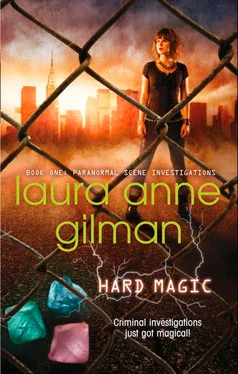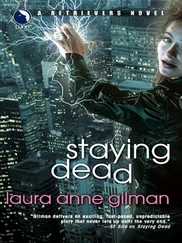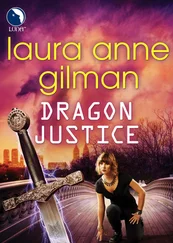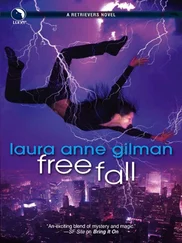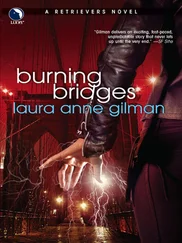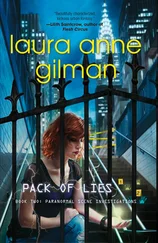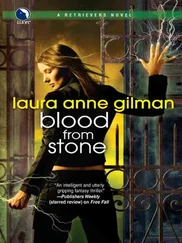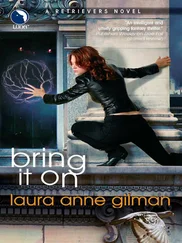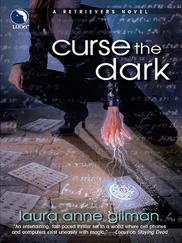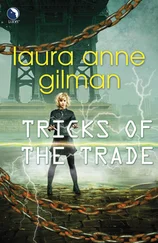“Which means what?” Sharon asked, her hands fisted on her hips, like she was going to walk out if she didn’t get answers, stat. Hah. Flame’s definition of a prima donna was clearly different from mine.
“It means you’re hired,” DB said, his expression almost—not quite, but almost—looking pleased about the prospect. “All of you.”
There was a slight popping noise, and four more chairs appeared in the office, distributed neatly around the desk. Someone was showing off. From the look DB shot his … partner? I was guessing it was Flame.
“Please,” he was saying, gesturing to the chairs. “Sit. I will explain.”
“That would be nice,” Nick said, sitting in one of the chairs and leaning back in it as though he had all the time in the world. “Starting with who the hell you are.”
Pietr stuck to his position against the wall, but the rest of us took the offered chairs, mainly because, at least for me, my knees were still wobbly. DB righted the overturned leather desk chair and sat in it, effectively reclaiming the desk as his territory, while Flame rested his right hip against the edge of the desk and gazed at us as though he was about to start a lecture.
“Ah. Where to start. At the beginning, yes, Ben, I know,” he said before DB could say anything. I was right, they were partners—not sexual, not unless I was reading them all wrong, and I didn’t do that very often. But business partners, in whatever this was, yes.
“My name is Ian Stosser.” He waited, like we were supposed to have heard of him. “Ah. My partner here, whom you have already met under … awkward circumstances, is Benjamin Venec.”
Venec nodded once at us, his gaze sweeping restlessly from face to face. It wasn’t boredom but evaluation; I knew, having used the same sweep myself more than once. The look of a people-watcher. Stosser was the talker, Venec the looker. One prodded, the other collated responses. Good teamwork. Good cop/bad cop. Or whatever they were.
“Several years ago, there was an incident in Seattle. The Madeline case.” Stosser paused, probably for dramatic effect. “Do any of you remember it?”
I did. Nifty shook his head, and so did Pietr and Sharon. Nick was the only one who spoke up.
“The girl who was raped and murdered. They never found the killer. She was Cosa,” he said to the others. “Sixteen, still in mentorship.”
That meant that she was still a kid, supposed to be protected, taken care of, not just by her mentor but by every adult Talent. That’s the theory, anyway.
“She was killed by strangulation, but the coroner was never able to say exactly how, because there wasn’t any of the usual marks or indications in the autopsy. There were rumblings, maybe she’d been killed by someone within the Cosa. That someone had used current to subdue and kill her. Madeline’s mentor offered a huge reward, but nobody ever came forward.”
I knew about the case because Madeline and her mentor had been Council. J had been part of the investigating team flown out to look into the alibis of a couple of the guys they suspected. Nothing had ever been proven, nothing had ever been done. He’d come home and hugged me really tight, and never said a word about it after that.
“That’s right. A dead end, totally untraceable, unprovable … Then.” Stosser started pacing, forcing us to follow his movements. “But it got us, Ben and me, to thinking. Why was it untraceable? We all know how to detect current—it’s one of the first things we’re taught in mentorship. We gather it, manipulate it, direct it, imprint it … A current-signature is like a fingerprint, and therefore, like a fingerprint, it should lead you back to the owner, if you only know how. They had suspects, and my contacts tell me that the signature connected to one of them. So why couldn’t they do that, why couldn’t they make that connection for Madeline?”
“Because nobody could agree on the validity of the identification, because there were too many personal conflicts … and not everyone agreed on the validity of the identification, leaving enough doubt that they couldn’t do anything about it.” I hadn’t learned about that from J—I’d done some digging myself, after. All this had been just after Zaki had been killed, and murder was a lot on my mind.
“Right.” Stosser gave me a look of approval, professor to bright student. “But what if … a large what-if, but work with me here, what if there was someone who could and would do the work, tracking down the evidence and building a case based only on the evidence … totally unbiased by any other allegiance than a dedication to the facts … to an insatiable desire to know What Happened?”
I could hear the capitalization in his voice, even before he made quote signs with his hands around those last two words.
“What if there was a place that people could turn to, for crimes committed outside the abilities of the Null police force and court system—crimes by Talent against Talent?”
His comment cut so close to my own pain that I was literally breathless for an endless second.
“There isn’t,” Sharon said, her I-know-everything voice back. That tone was already starting to irk me, even though I knew she was right. “Council won’t trust anything not Council, and lonejacks … “
“Lonejacks won’t trust anyone,” Nifty said.
“That has been true, traditionally,” DB said, and I really needed to stop thinking of him like that, since he wasn’t actually dead anymore. “But traditionally, Talent did not attack Talent, either. The Madeline case was high profile, but even that didn’t get much chatter. So what you don’t know is that there have been others … and the numbers are growing.”
I felt a chill in my spine. Zaki had been one of those numbers, killed by another Talent. I hadn’t realized … I had always thought he was an aberration, a tragic fluke. Talent killing Talent … there weren’t that many of us to begin with; the lines of community had always kept us safe from each other. What had changed?
“The world is changing. We’re changing …” Stosser did that dramatic pause thing again, while I reminded myself that there was no way he could have been reading my mind, that not even the purest Talent could do that without permission. “And we need to change other things in order to keep up. Including how we react to those changes.”
“And you want to be part of that change,” Pietr said, sounding intrigued despite himself. “How?”
“Puppy.”
“What?” I couldn’t have been the only one hearing that wrong.
“P-U-P-I.” DB—Venec—spelled it out. “Private, Unaffiliated, Paranormal Investigations. The name was Ian’s idea—” he shot his partner a rueful glance “—but it has the benefit of being easily remembered. A team of trained forensic Talents, shorn of their normal affiliations of lonejack or Council, answerable only to the evidence, the truth. A handpicked group of investigators who don’t care why, only how, and who. A group who can deliver evidence to be used to prosecute and punish Talent who think they can escape detection by ordinary methods.”
“And you want to hire … us.” Pietr’s voice was carefully noncommittal.
“Any of you can get up and walk out at any time,” Stosser said, coming to rest by his partner’s side, hands clasped behind his back as though to keep them from waving about while he talked. “There’s nothing keeping you here against your will. We chose your names not by random chance, but because each and every one of you met our criteria for intelligence, independence, determination, curiosity, and a certain … dogged stubbornness.”
Nifty coughed deep in his throat, like a strangled laugh, and I had to grin in self-recognition. All the traits J occasionally despaired of, suddenly touted as employable virtues. That was funny.
Читать дальше
